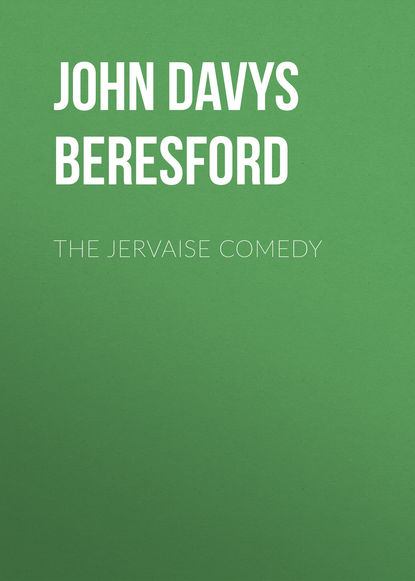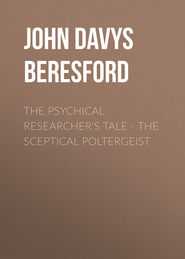По всем вопросам обращайтесь на: info@litportal.ru
(©) 2003-2024.
✖
The Jervaise Comedy
Автор
Год написания книги
2018
Настройки чтения
Размер шрифта
Высота строк
Поля
She came and stood beside me at the gate, without speaking; and my mind was so full of her, so intoxicated with the splendour of my imaginings, that I thought she must surely share my newfound certainty that we had met once more after an age of separation. I waited, trembling, for her to begin. I knew that any word of mine would inevitably precipitate the bathos of a civilised conversation. I was incapable of expressing my own thought, but I hoped that she, with her magic voice, might accomplish a miracle that was beyond my feeble powers. Indeed, I could imaginatively frame for her, speech that I could not, myself, deliver. I knew what I wanted her to say—or to imply. For it was hardly necessary for her to say anything. I was ready, wholly sympathetic and receptive. If she would but give me the least sign that she understood, I could respond, though I was so unable to give any sign myself.
I came down from my clouds with a feeling of bitter disappointment, a sense of waking from perfect dreams to the realisation of a hard, inimical world, when she said in a formal voice.
“It’s after eleven. My mother and father have gone to bed.”
“Is he—is he in any way reconciled?” I asked, and I think I tried to convey something of resentment by my tone. I still believed that she must guess.
“In a way,” she said, and sighed rather wearily.
“It must have been very hard for him to make up his mind so quickly—to such a change,” I agreed politely.
“It was easier than I expected,” she said. “He was so practical. Just at first, of course, while Mr. Jervaise was there, he seemed broken. I didn’t know what we should do. I was almost afraid that he would refuse to come. But afterwards he—well, he squared his shoulders. He is magnificent. He’s as solid as a rock. He didn’t once reproach us. He seemed to have made up his mind; only one thing frightened him…”
“What was that?” I asked, as she paused.
“That we haven’t any capital to speak of,” she said. “Even after we have sold the furniture here, we shan’t have more than five or six hundred pounds so far as we can make out. And he says it isn’t enough. He says that he and mother are too old to start again from small beginnings. And—oh! a heap of practical things. He is so slow in some ways that it startled us all to find out how shrewd he was about this. It was his own subject, you see.”
“There needn’t be any difficulty about capital,” I said eagerly. I had hardly had patience for her to finish her speech. From her first mention of that word “capital” I had seen my chance to claim a right in the Banks’s fortunes.
“I don’t see…” she began, and then checked herself and continued stiffly, “My father would never accept help of any kind.”
“Arthur might—from a friend,” I said.
“He thinks we’ve got enough—to begin with,” she replied. “They’ve been arguing about it. Arthur’s young and certain. Father isn’t either, and he’s afraid of going to a strange country—and failing.”
“But in that case Arthur must give way,” I said.
Anne was silent for a moment and then said in a horribly formal voice. “Am I to understand, Mr. Melhuish, that you are proposing to lend Arthur this money?”
“On any terms he likes,” I agreed warmly.
“Why?”
I could not mistake her intention. I knew that she expected me to say that it was for her sake. I was no less certain that if I did say that she would snub me. Her whole tone and manner since she had come out to the gate had challenged me.
“Here we are alone in the moonlight,” her attitude had said. “You’ve been trying to hint some kind of admiration for me ever since we met. Now, let us get that over and finished with, so that we can discuss this business of my father’s.”
“Because I like him,” I said. “I haven’t known him long, of course; only a few hours altogether; but…” I stopped because I was afraid she would think that the continuation of the argument might be meant to apply to her rather than to Arthur; and I had no intention of pleading by innuendo. When I did speak, I meant to speak directly, and there was but one thing I had to say. If that failed, I was ready to admit that I had been suffering under a delusion.
“Well?” she prompted me.
“That’s all,” I said.
“Weren’t you going to say that it wasn’t how long you’d known a person that mattered?”
“It certainly didn’t matter in Arthur’s case,” I said. “I liked him from the first moment I saw him. It’s true that we had been talking for some time before there was light enough for me to see him.”
“You like him so much that you’d be willing to lend him all the money he wanted, without security?” she asked.
“Yes, all the money I have,” I said.
“Without any—any sort of condition?”
“I should make one condition,” I replied.
“Which is?”
“That he’d let me come and stay with him, and Brenda, and all of you—on the farm.”
“And, of course, we should all have to be very nice to you, and treat you as our benefactor—our proprietor, almost,” she suggested cruelly.
I was hurt, and for a moment I was inclined to behave much as young Turnbull had behaved that afternoon, to turn away and sulk, and show that I had been grievously misunderstood. I overcame that impulse, however. “I shouldn’t expect you to curtsey!” I said.
She turned to me with one of her instant changes of mood.
“Why don’t you tell me the truth?” she asked passionately.
“The truth you mean hasn’t anything whatever to do with what we’re talking about now,” I said.
“Oh! but it has. It must have,” she protested. “Aren’t you trying to buy my good-will all the time? All this is so heroic and theatrical. Aren’t you being the splendid benefactor of one of your own plays—being frightfully tactful and oh! gentlemanly? It wouldn’t be the right thing, of course, to—to put any sort of pressure on me; but you could put us all under every sort of obligation to you, and afterwards—when you came to stay with us—you’d be very forbearing and sad, no doubt, and be very sweet to my mother—she likes you already—but every one would know just why; and you’d all expect me—to—to do the right thing, too.”
If I had not been truly in love with her I should have been permanently offended by that speech. It stung me. What she implied was woundingly true of that old self of mine which had so recently come under my observation and censure. I could see that; and yet if any one but Anne had accused me I should have gone off in high dudgeon. The hint of red in my hair would not permit me to accept insult with meekness. And while I was still seeking some way to avoid giving expression to my old self whose influence was painfully strong just then, she spoke again.
“Now you’re offended,” she said.
I avoided a direct answer by saying, “What you accused me of thinking and planning might have been true of me yesterday; it isn’t true, now.”
“Have you changed so much since yesterday?” she asked, as if she expected me to confess, now, quite in the familiar manner. She had given me an opportunity for the proper continuation. I refused it.
“I have only one claim on you,” I said boldly.
“Well?” she replied impatiently.
“You recognised me last night.”
It was very like her not to fence over that. She had a dozen possible equivocations, but she suddenly met me with no attempt at disguise.
“I thought I did,” she said. “Just for a minute.”
“And now? You know…?”
She leaned her elbows on the gate and stared out over the moonlit mysteries of the Park.
“You’re not a bit what I expected,” she said.
I misunderstood her. “But you can’t…” I began.
“To look at,” she interrupted me.
I came down from my clouds with a feeling of bitter disappointment, a sense of waking from perfect dreams to the realisation of a hard, inimical world, when she said in a formal voice.
“It’s after eleven. My mother and father have gone to bed.”
“Is he—is he in any way reconciled?” I asked, and I think I tried to convey something of resentment by my tone. I still believed that she must guess.
“In a way,” she said, and sighed rather wearily.
“It must have been very hard for him to make up his mind so quickly—to such a change,” I agreed politely.
“It was easier than I expected,” she said. “He was so practical. Just at first, of course, while Mr. Jervaise was there, he seemed broken. I didn’t know what we should do. I was almost afraid that he would refuse to come. But afterwards he—well, he squared his shoulders. He is magnificent. He’s as solid as a rock. He didn’t once reproach us. He seemed to have made up his mind; only one thing frightened him…”
“What was that?” I asked, as she paused.
“That we haven’t any capital to speak of,” she said. “Even after we have sold the furniture here, we shan’t have more than five or six hundred pounds so far as we can make out. And he says it isn’t enough. He says that he and mother are too old to start again from small beginnings. And—oh! a heap of practical things. He is so slow in some ways that it startled us all to find out how shrewd he was about this. It was his own subject, you see.”
“There needn’t be any difficulty about capital,” I said eagerly. I had hardly had patience for her to finish her speech. From her first mention of that word “capital” I had seen my chance to claim a right in the Banks’s fortunes.
“I don’t see…” she began, and then checked herself and continued stiffly, “My father would never accept help of any kind.”
“Arthur might—from a friend,” I said.
“He thinks we’ve got enough—to begin with,” she replied. “They’ve been arguing about it. Arthur’s young and certain. Father isn’t either, and he’s afraid of going to a strange country—and failing.”
“But in that case Arthur must give way,” I said.
Anne was silent for a moment and then said in a horribly formal voice. “Am I to understand, Mr. Melhuish, that you are proposing to lend Arthur this money?”
“On any terms he likes,” I agreed warmly.
“Why?”
I could not mistake her intention. I knew that she expected me to say that it was for her sake. I was no less certain that if I did say that she would snub me. Her whole tone and manner since she had come out to the gate had challenged me.
“Here we are alone in the moonlight,” her attitude had said. “You’ve been trying to hint some kind of admiration for me ever since we met. Now, let us get that over and finished with, so that we can discuss this business of my father’s.”
“Because I like him,” I said. “I haven’t known him long, of course; only a few hours altogether; but…” I stopped because I was afraid she would think that the continuation of the argument might be meant to apply to her rather than to Arthur; and I had no intention of pleading by innuendo. When I did speak, I meant to speak directly, and there was but one thing I had to say. If that failed, I was ready to admit that I had been suffering under a delusion.
“Well?” she prompted me.
“That’s all,” I said.
“Weren’t you going to say that it wasn’t how long you’d known a person that mattered?”
“It certainly didn’t matter in Arthur’s case,” I said. “I liked him from the first moment I saw him. It’s true that we had been talking for some time before there was light enough for me to see him.”
“You like him so much that you’d be willing to lend him all the money he wanted, without security?” she asked.
“Yes, all the money I have,” I said.
“Without any—any sort of condition?”
“I should make one condition,” I replied.
“Which is?”
“That he’d let me come and stay with him, and Brenda, and all of you—on the farm.”
“And, of course, we should all have to be very nice to you, and treat you as our benefactor—our proprietor, almost,” she suggested cruelly.
I was hurt, and for a moment I was inclined to behave much as young Turnbull had behaved that afternoon, to turn away and sulk, and show that I had been grievously misunderstood. I overcame that impulse, however. “I shouldn’t expect you to curtsey!” I said.
She turned to me with one of her instant changes of mood.
“Why don’t you tell me the truth?” she asked passionately.
“The truth you mean hasn’t anything whatever to do with what we’re talking about now,” I said.
“Oh! but it has. It must have,” she protested. “Aren’t you trying to buy my good-will all the time? All this is so heroic and theatrical. Aren’t you being the splendid benefactor of one of your own plays—being frightfully tactful and oh! gentlemanly? It wouldn’t be the right thing, of course, to—to put any sort of pressure on me; but you could put us all under every sort of obligation to you, and afterwards—when you came to stay with us—you’d be very forbearing and sad, no doubt, and be very sweet to my mother—she likes you already—but every one would know just why; and you’d all expect me—to—to do the right thing, too.”
If I had not been truly in love with her I should have been permanently offended by that speech. It stung me. What she implied was woundingly true of that old self of mine which had so recently come under my observation and censure. I could see that; and yet if any one but Anne had accused me I should have gone off in high dudgeon. The hint of red in my hair would not permit me to accept insult with meekness. And while I was still seeking some way to avoid giving expression to my old self whose influence was painfully strong just then, she spoke again.
“Now you’re offended,” she said.
I avoided a direct answer by saying, “What you accused me of thinking and planning might have been true of me yesterday; it isn’t true, now.”
“Have you changed so much since yesterday?” she asked, as if she expected me to confess, now, quite in the familiar manner. She had given me an opportunity for the proper continuation. I refused it.
“I have only one claim on you,” I said boldly.
“Well?” she replied impatiently.
“You recognised me last night.”
It was very like her not to fence over that. She had a dozen possible equivocations, but she suddenly met me with no attempt at disguise.
“I thought I did,” she said. “Just for a minute.”
“And now? You know…?”
She leaned her elbows on the gate and stared out over the moonlit mysteries of the Park.
“You’re not a bit what I expected,” she said.
I misunderstood her. “But you can’t…” I began.
“To look at,” she interrupted me.








